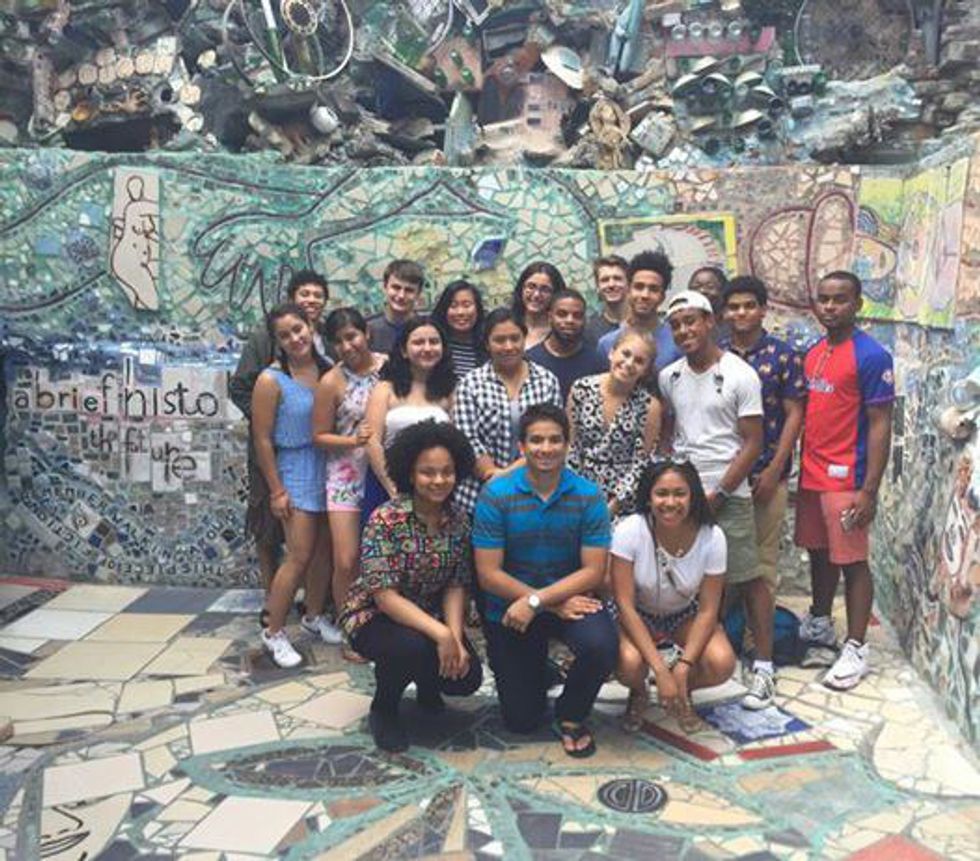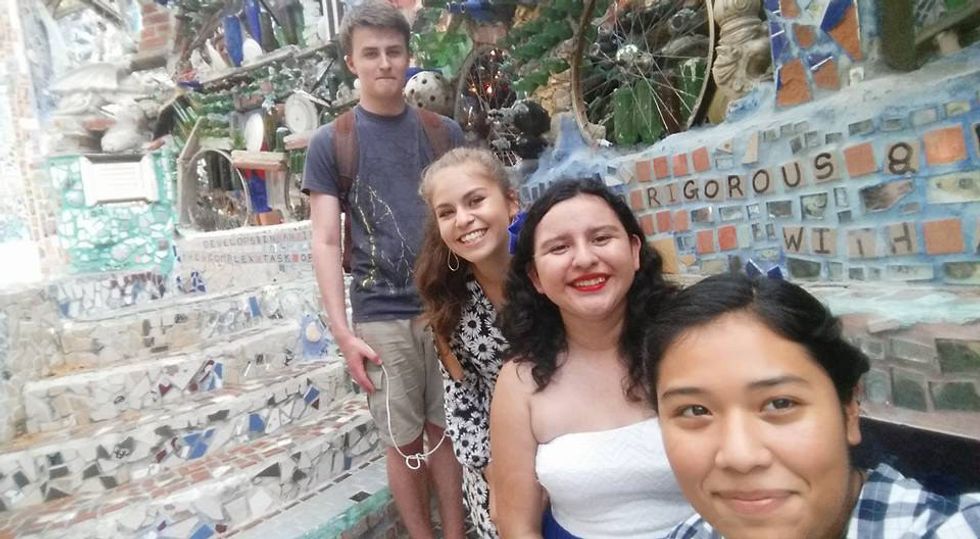For the past five weeks, I had the honor of attending Haverford College’s Chesick Scholar Summer Institute with 15 of the brightest students in Haverford’s incoming freshmen class. The Chesick program is a four-year program that provides both academic mentoring and a leadership program for 16 talented students that come from underrepresented backgrounds in academia. During the summer, the Chesick class of 2020 took the campus by storm, demonstrating academic excellence in two college courses. But beyond taking classes, we were able to form strong relationships with other Chesicks as well as several Haverford faculty members.
During the summer, Chesick Scholars took two semester-long courses in just five weeks. This intensive courseload allows for Chesick Scholars to gain classroom experience before starting in the fall. Every Chesick Scholar took one quantitative/science course and one writing seminar, each consisting of eight students. The small class sizes allowed for rich discussions, interactive group work, and close relationships between the students and professor. During my writing seminar, I found myself learning not only from my professor, but also from my peers. Our discussion-based class allowed for everyone to contribute to the class and offer each other different interpretations of our readings. In high school, I never had the opportunity to experience this and even though this course was short-lived, I feel more comfortable engaging in discussions.
We also had to write a couple of essays this summer, and although college writing is difficult, the Summer Institute allowed Chesick Scholars to gain experience with this new style of rigor. Going into the fall, a lot of us are a lot more prepared to start writing this fall. The quantitative/science courses offered an interactive approach to the traditional high school math/science classes. In my course, "Visualizing and Exploring Data," we explored statistics through the lens of social scientists. We used the programming language, R, in order to explore statistical trends in topics ranging from domestic presidential elections to more international affairs. Learning R was like learning a new language, and it was very difficult to grasp it at first. But this course taught me that asking for help is OK, that I shouldn’t feel ashamed of not understanding something because making mistakes is part of the learning experience.
Also, I discovered how useful office hours are and I know that in the fall, I will be attending my professors’ office hours if I am struggling with the material. Additionally, both my course, and the other course offered, "The Decline of the Western Honeybee," offered us hands-on-experience to the fields we were studying. While I was behind a computer using statistical data to uncover information, some of my peers got to explore actual beehives and research on honeybees. Their research findings are now part of a greater project being conducted to discover the cause behind the decline of Western Honeybees. At the end of the summer, we exhibited our findings and it gave our findings a greater purpose.
Beyond learning in the classroom, Chesick Scholars had the opportunity to learn outside the classroom as well through meaningful discussions. It wasn’t uncommon to walk into one of the common rooms and listen to a discussion about social justice. Haverford students are known for being engaged with social issues, and this summer was only a peek of what I can expect to see in the fall.
Read more about my experience in Part 2!






 StableDiffusion
StableDiffusion StableDiffusion
StableDiffusion StableDiffusion
StableDiffusion Photo by
Photo by  Photo by
Photo by  Photo by
Photo by 
 Photo by
Photo by  Photo by
Photo by  Photo by
Photo by  Photo by
Photo by  Photo by
Photo by 











